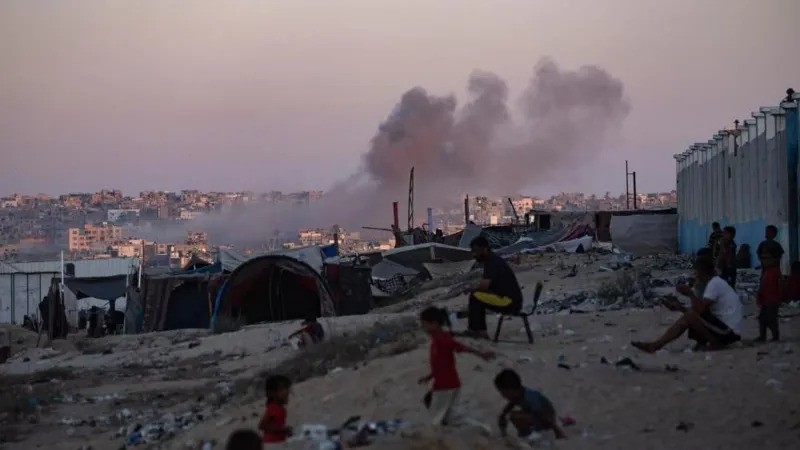An Israeli airstrike on Wednesday destroyed the municipal headquarters in Nabatieh, a key town in southern Lebanon. The attack killed the town’s mayor, Ahmed Kahil, and at least five others. They were meeting to coordinate aid for those affected by the ongoing war when the strike hit.
The incident has raised concerns about Israel expanding its air campaign to include public officials and government buildings. So far, such targets have been largely avoided. Lebanon’s Caretaker Prime Minister, Najib Mikati, condemned the strike, stating it “intentionally targeted a meeting of the municipal council to discuss the city’s service and relief situation.”
Rising Concerns of Widening Conflict
This attack marks the most significant Israeli strike on a Lebanese state building since its military offensive expanded last month. Despite concerns expressed by the U.S. over escalating violence and the potential for all-out war in the Middle East, Israel has intensified its operations against Iran-backed Hezbollah.
In recent weeks, Israeli forces have carried out targeted assassinations of Hezbollah leadership and advanced into southern Lebanese towns. Their stated goal is to dismantle Hezbollah’s military infrastructure and allow Israeli residents to safely return to northern Israel.
After Israel issued an evacuation notice for Nabatieh on October 3, Mayor Kahil had told Reuters that he would not leave. The town, home to tens of thousands of people, was hit hard by Wednesday’s airstrikes.
Israel Targets Hezbollah Strongholds
The Israeli military said it carried out multiple strikes in the Nabatieh area, targeting Hezbollah positions. The Israeli navy also struck dozens of targets in southern Lebanon. Israeli officials claim they “dismantled” a tunnel network used by Hezbollah’s elite Radwan Forces near the Israel-Lebanon border.
One of the targeted areas was Mhaibib, a small town known for its religious shrine, according to Lebanese officials.
The U.N. Special Coordinator for Lebanon, Jeanine Hennis-Plasschaert, warned that civilian suffering in Lebanon has reached unprecedented levels following the airstrike in Nabatieh.
Read: NADRA Launches Biker Service for CNICs for Doorstep Solution
Expanding Regional Tensions
Israel is now engaged in conflicts with Hezbollah in southern Lebanon and Beirut, while simultaneously battling Hamas in Gaza. Tensions also remain high with Iran, particularly after an Iranian missile attack on October 1. In Beirut, Israeli airstrikes targeted the southern suburbs, a Hezbollah stronghold, killing civilians.
The U.S. has voiced concerns about Israel’s recent military actions in Beirut, with State Department spokesperson Matthew Miller stating that Washington has raised these issues with the Israeli government.
Heavy Civilian Toll
Israeli strikes have caused significant civilian casualties in Lebanon, prompting Western countries like France to call for an immediate ceasefire. France has also banned Israeli firms from a military trade show in response to Israel’s operations.
According to Lebanon’s health ministry, at least 2,350 people have been killed in Israeli airstrikes over the past year, and more than 1.2 million people have been displaced. The U.N. reports that a quarter of Lebanon is currently under evacuation orders.
Despite the mounting civilian death toll, there are no signs of a ceasefire on the horizon. Lebanese Prime Minister Mikati questioned whether diplomatic efforts could halt Israel’s attacks, noting that even U.N. peacekeeping forces have come under fire in southern Lebanon.
Follow us on Google News, Instagram, YouTube, Facebook,Whats App, and TikTok for latest updates
